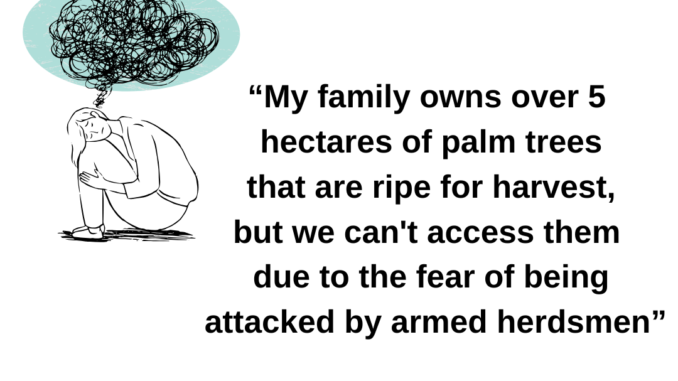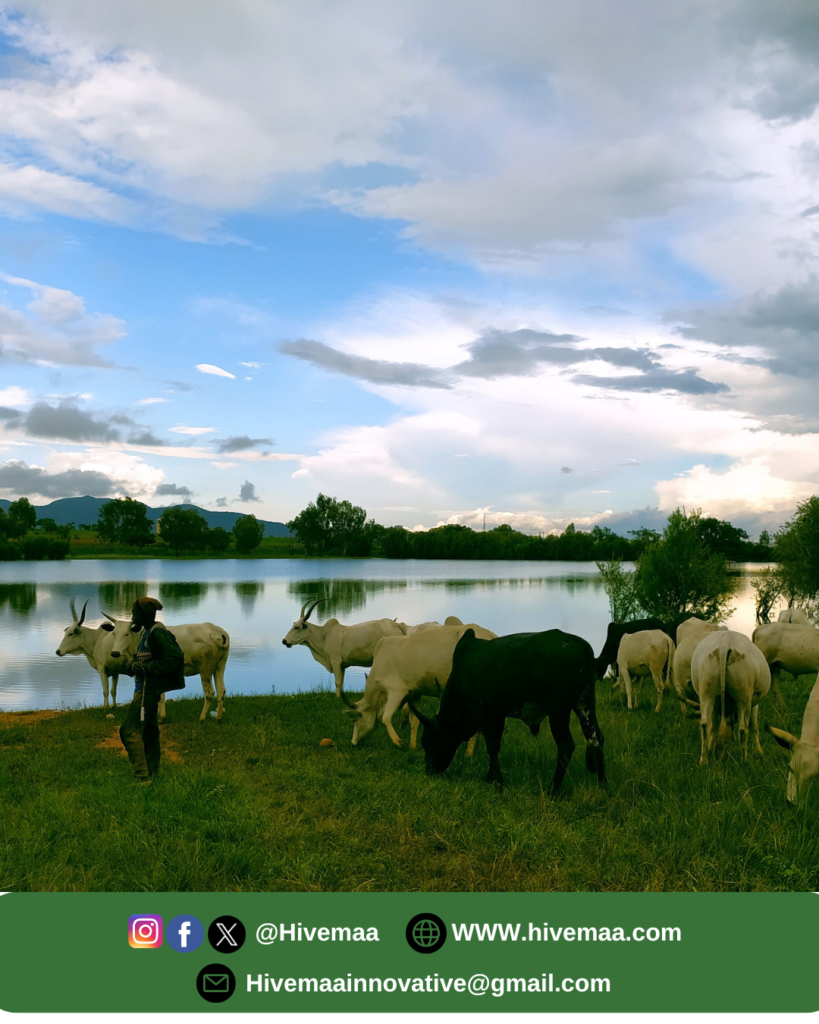
The farmer-herder crisis in Nigeria has been a longstanding issue, with tensions escalating significantly in the early 2000s. What began as occasional disputes over grazing lands and water sources has evolved into widespread violence, particularly in states like Benue, known as Nigeria’s "Food Basket." The crisis has led to massive displacement, loss of livelihoods, and a decline in agricultural productivity, with farmers abandoning their lands due to fear of attacks. Despite government interventions such as anti-open grazing laws and security deployments, the situation remains volatile, with clashes continuing to threaten food security and rural economies.
In the midst of this crisis, many farmers struggle daily to protect their land, crops, and families. One such farmer is Emmanuella, whose story reflects the harsh realities of trying to survive in a conflict zone. From losing farmlands to armed attacks and struggling with unpredictable weather conditions, her journey tells the story of many local farmers and the urgent need for lasting solutions to the crisis.
Can you tell me about yourself and your farming background?
I am Emmanuella from Gwer West Local Government of Benue State, Nigeria. I was born into a family that practiced subsistence agriculture.
How long has your family been involved in agriculture, and what aspects have you been involved in?
We have been involved in agriculture for about 15 years now. We primarily farm food crops such as yam, maize, guinea corn, rice, and sweet potatoes on a substantial scale.
How has your farming experience been over the years? Can you tell me more about it?
It has been a rewarding experience. The harvest has always reflected the hard work invested during the rainy season. Although we have faced some challenges, farm yields have generally been encouraging over the years.
Let’s talk about the farmer-herder crisis in Benue State.
Has it affected your farming business in any way?
Yes, it has.
The crisis began as early as 2011, and since then, farming has become very dangerous. Many farmers have been killed on their farms, forcing them to relocate from the interior parts of the local government. More recently, even areas close to the local government headquarters have come under attack, making farming extremely difficult. Farmers are now afraid to go to their own lands.
My family owns over 5 hectares of palm trees that are ripe for harvest, but we can't access them due to the fear of being attacked by the herdsmen.
That’s really sad.
Very sad.
Without access to your farms, how has your family been able to meet daily needs?
We rely mostly on our monthly salaries. My mother also runs a small provision shop at home, which helps cater to the family's needs.
What has the government done about this issue that you are aware of?
Absolutely nothing.
Whenever deaths are reported, the authorities respond as if they are hearing about it for the first time, and no security measures are put in place.
Do you think there is hope for the situation to improve?
Only God can help us.
Thank you for your time.

The Nigerian federal and Benue state governments have taken various steps to address the persistent farmer-herder crisis. The federal government introduced the National Livestock Transformation Plan (NLTP) to encourage ranching and reduce open grazing, along with the now-suspended Ruga settlement policy, which aimed to create designated areas for herders. Conflict resolution programs, including United Nations-backed mediation efforts, have also been implemented to foster peaceful coexistence between farmers and herders. Despite these initiatives, enforcement challenges and opposition from affected communities have slowed progress. The Benue state government enacted the Anti-Open Grazing Law in 2017, banning open grazing and mandating ranching to prevent crop destruction. Security initiatives, such as the Benue Livestock Guard and Conflict Prevention Forums, have been established to enforce regulations and promote dialogue between both groups. Additionally, the state has facilitated security and boundary discussions to prevent territorial disputes.
Despite these efforts, challenges persist in effectively resolving the farmer-herder conflicts. Issues such as inadequate enforcement of laws, limited public awareness, and resource constraints continue to hinder the success of these initiatives.
How can you help?
You can help address the farmer-herder crisis by advocating for fair policies that protect farmers without criminalizing self-defense, supporting legal aid for persecuted farmers, and promoting peaceful conflict resolution initiatives. Raising awareness through media, petitions, and social activism can pressure authorities to act, while community vigilance and early warning systems can help prevent attacks. Supporting legally recognized security outfits and empowering farmers with better resources can also contribute to long-term solutions. Our collective actions through lawful means can drive meaningful change and improve security for affected communities.